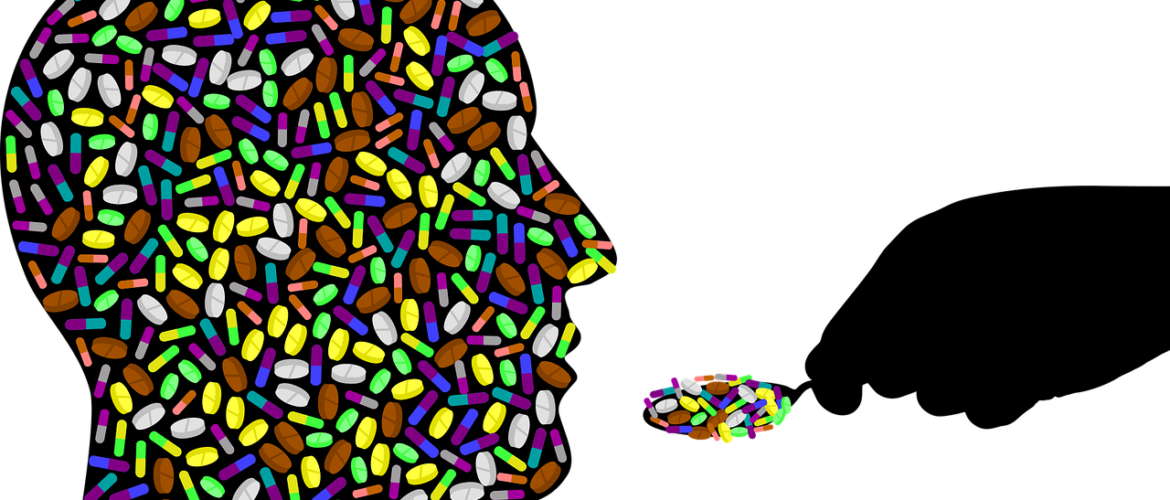NICE draft guideline recommends GPs should not prescribe opioids for chronic pain
In the wake of continued concerns about the growing opioid crisis in the UK, NICE (National Institute for Health and Clinical Excellence) has published a draft guideline for consultation for the assessment and management of chronic pain in the over 16s. The consultation on this new clinical guideline, which was commissioned in May 2017 and closes on 14th September 2020. Comments from stakeholder organisations are invited but individuals are not able to comment.
NICE is an agency of the National Health Service charged with promoting clinical excellence in NHS service providers in England and Wales, by developing guidance and recommendations on the effectiveness of treatments and medical procedures.
NICE guidelines are evidence-based recommendations that set out the care and services suitable for most people with a specific condition or need, and people in particular circumstances or settings.
The draft guideline on chronic pain includes a number of recommendations on pharmaceutical and non-pharmaceutical management of chronic pain, with recommendations for research on some of the non-pharmaceutical options.
However, the guideline is emphatic in its recommendation that certain pharmaceuticals should not be prescribed to managed chronic primary, with opioids at the top of the list. The document states:
“Do not offer any of the following, by any route, to people aged 16 years and over to manage chronic primary pain;
opioids
non-steroidal anti-inflammatory drugs
Benzodiazepines
anti-epileptic drugs including gabapentinoids</em
Paracetamol
Ketamine
Corticosteroids
antipsychotics”
The guidance suggests that:
“The lack of evidence for effectiveness of opioids, along with evidence of long-term harm, persuaded the committee to recommend against opioid use for people with chronic primary pain.
“Although there were limitations, evidence from non-randomised studies on the long-term use (more than six months) of opioids for chronic pain suggested an increased risk of dependence.
The committee also agreed that even short-term use of opioids could be harmful for a chronic condition.
The report has been particularly welcomed by drug addiction treatment experts such as UKAT. Managing Director, Eytan Alexander says:
“Finally, it is written in black and white the dangers and addictive nature that prescribing opioids and other ‘pain relief’ drugs can have on patients”
“Prescription drug addiction is as real as a Heroin addiction, but in this case, the addict gets their drugs from their GP rather than a dealer, to ‘treat’ their pain. We’re pleased to hear that today, the advice is that this should no longer be an option. GP’s need to be supported and resourced well enough so that they can spend a longer amount of time with their patients in order to provide a more holistic, safer treatment plan for chronic pain. One that doesn’t lead to addiction.”
Naturally, GPs will need to carefully consider how they manage patients who have been previously prescribed any of these addictive medications.
The clinical pharmacists based at most GP surgeries will be able to provide appropriate advice and support for those patients.
The University of East Anglia’s opioid-reduction expert Dr Debi Bhattacharya has launched a toolkit to help GPs reduce the amount of opioids they prescribe.
In June 2019, the NHS published a YouTube Video to help prescribers support patients to reduce their medication for chronic pain and offers advice on training materials that are available.
Hopefully, social prescribing will increasingly be embraced by GP surgeries for a number of conditions including chronic pain. The NICE guideline suggests the following as some of the non-pharmaceutical interventions available as alternatives to the addictive medications currently prescribed:
1. Pain management programmes
These have been used effectively in the NHS for many years and involve talks and practical sessions where people learn about pain and ways to try and control and limit pain and how to exercise safely and build up activity levels.
As the programmes vary from area to area and evidence on the effectiveness is inconsistent, the guideline has made a recommendation for research.
2. Exercise for chronic pain
Supervised group exercise programmes, taking into account people’s specific needs, preferences, and abilities into account. The exercises may include cardiovascular, mind–body, strength, or a combination of approaches.

People already exercising for longer-term health benefits should be encouraged to carry on the regime, adapting as necessary. [Healthy Life Essex recommends using fully qualified professionals such as CHEK practitioners with enhanced skills and knowledge and a more holistic approach to exercise.]
3. Psychological therapies such as ACT and CBT
Acceptance and Commitment Therapy (ACT) and Cognitive Behaviour Therapy (CBT) are both behaviour-based therapies. CBT works by helping identify and change negative or destructive thoughts whereas ACT holds that pain and discomfort are a fact of life – something we must get comfortable with if we wish to live a happy, fulfilled life. ACT encourages you to accept all thoughts rather than trying to change them – both the good and the bad.
Biofeedback is not recommended to people aged 16years and over to manage chronic primary pain.
4. Acupuncture or dry needling
A course of acupuncture or dry needling is recommended provided the course is delivered in a community setting by a healthcare professional with a maximum of 5 hours of professional time.
5. Manual therapy
The guideline states that there is insufficient evidence on manual therapy (as provided by a physiotherapist, for example) and made a recommendation for research.
Healthy Life Essex says:
We welcome this draft guideline and the move away from prescribing opioids and other addictive medications for chronic pain and chronic primary pain.
However, it is important to consider the following:
NICE guidelines are evidence-based and take into account the clinical and cost-effectiveness of treatments, which is why further research is recommended for certain non-pharmaceutical treatments.
The medical approach to many complementary therapies is still, generally, rather negative as although there may be a great deal of anecdotal evidence, there is invariably less empirical evidence to support many practices. Nonetheless, there are many compelling examples of how complementary therapies such as Reiki, Crystal Healing, Craniosacral Therapy and more can help people cope with chronic pain. Kelly Swain’s story is just one example.
It should also be remembered that many people are finding CBD helpful with alleviating pain. CBD purchased from reputable UK suppliers is not an addictive opioid because THC (the addictive component tetrahydrocannabinol) has been removed. Even the World Health Organization states that there is no known drug addiction with CBD and that:
CBD is generally well tolerated with a good safety profile. Reported adverse effects may be as a result of drug-drug interactions between CBD and patients’ existing medications.”
Image credits:
Medication image by Gordon Johnson from Pixabay


17 Comments
[…] As of August 2020, a new draft for chronic primary pain management has been published. The draft puts a heavy emphasis on limiting the access of people to opioids and […]
[…] should also be aware that some pharmaceuticals are also addictive and doctors are being advised not to prescribe certain medications for chronic pain such as opioids and even […]
[…] introduced social prescribing link workers to GP surgeries; and has also recognised the historical over-reliance on medication prescribed by GPs which has caused many health issues both in the short and […]
[…] as GPs have been advised by NICE (National Institute for Health and Clinical Excellence) not to prescribe opioids, and a range of other medications including paracetamol, for managing chronic […]
[…] medications can result in other mental health issues including addiction, to the extent that GPs are now advised NOT to prescribe a range of specific medications such as opioids and even paracetamol for chronic […]
[…] This year, NICE (National Institute for Health and Clinical Excellence) published a draft guideline for consultation for the assessment and management of chronic pain in the over 16s in an attempt to overt the growing opioid crisis in the UK. […]
[…] visit to properly investigate health issues before prescribing any medication. This is essential as overprescribing medications such as opioids is a real issue in the […]
[…] the side-effects of long-term use of more traditional prescribed forms of medicine for pain relief and/or depression are widely known and a lot of people fear using them for long periods as they can […]
Thanks it’s very helpful for me..
[…] a good option as the body inevitably requires increased doses to become effective, and many pharmaceuticals prescribed for pain relief cause harm over a long period and/or are […]
[…] might also consider curcumin as an option rather than relying on pain killers that may cause other side effects and potentially be addictive, but always speak to your doctor […]
[…] Even those seeking support from their GP are increasingly prone to addiction to prescribed medications. […]
[…] to euphoric recreation, there are many ways drugs can be useful, albeit there are concerns that addictive drugs are routinely prescribed long-term by GPs. And yet, many countries see them only as a negative thing and fight a war on drug addiction that […]
[…] symptoms of anxiety and depression, or even helping to improve overall sleep quality. It’s also a non-addictive alternative to conventional painkillers and has risen in popularity among casual and professional athletes for this […]
[…] Plus, you might want to stock up on some over-the-counter medicines that can help ease some of the symptoms, such as paracetamol for cold symptoms or pain or a cough bottle etc. Although don’t forget to consider natural options such as CBD to alleviate pain first as some medications are addictive. […]
[…] This is often met with long periods off work, complex surgery and prescribed painkillers. While prescribed painkillers, often opioids, may be effective in the short term, in the longer term they can cause other […]
[…] Our brains will have us thinking we have control, or will someday have control over addictive behaviours, and in the end, will continue to convince us of this even in the most dire of circumstances, which is why over 4,500 deaths occur annually due to drug poisoning in the UK, and over 8,900 deaths occur every year in the UK due to alcohol poisoning. Remembering, of course, that addiction can also relate to prescribed medications such as opioids. […]